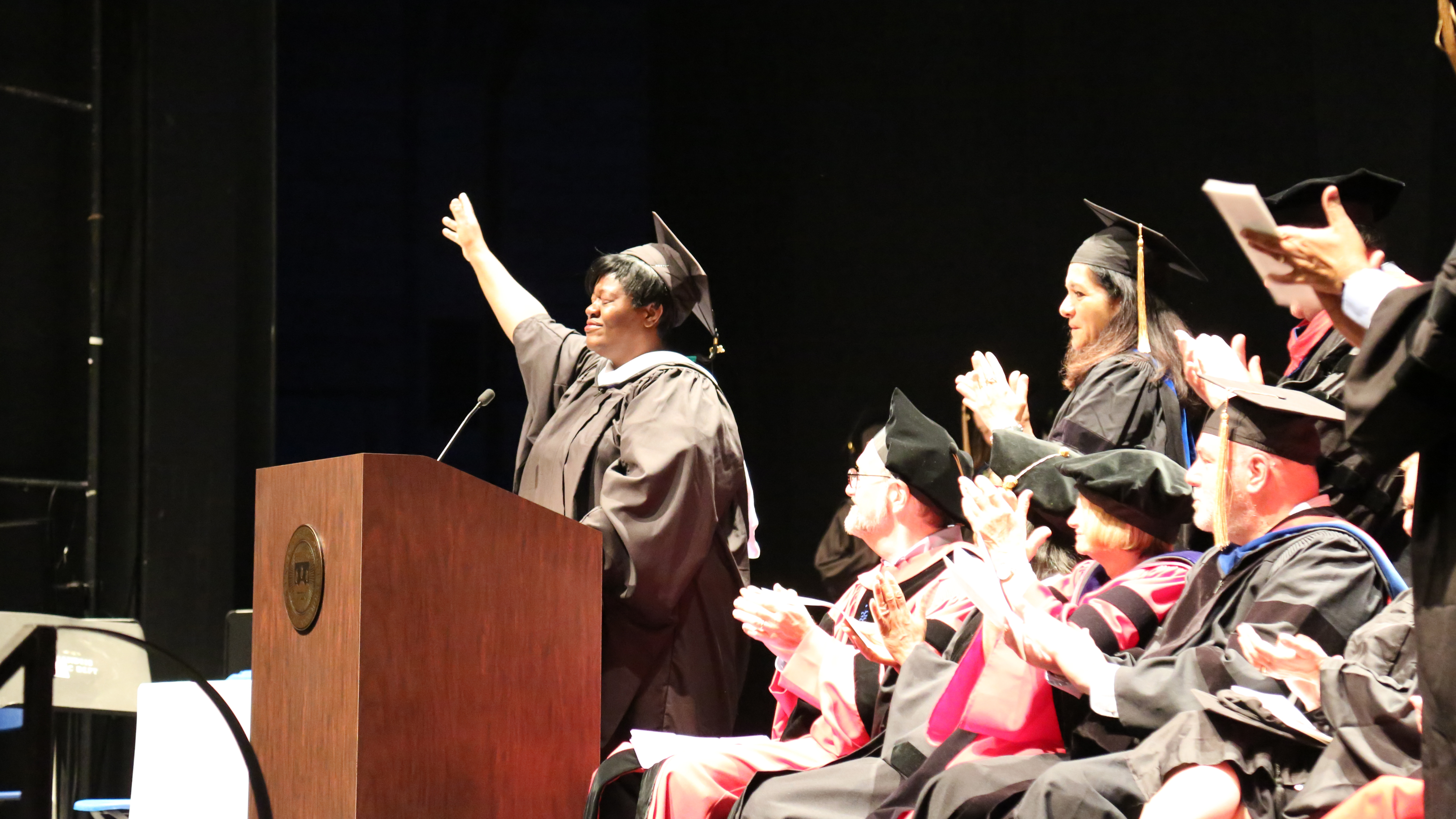
Dean David Weil, Professor Joan Dassin, all faculty of the Heller School, 2019 graduates, ladies and gentlemen: good morning! I am going to start with a story.
Alice Dzvukamanja was born in 1950 in what was then Rhodesia. She managed to get educated to grade nine only, because that was how far black women could get educated in that era. When she was 19 years old, she married a young man who started his own business. By the time the country gained its independence in 1980 the couple purchased a house in a neighborhood that was formerly whites only.
As the family started to grow, a question was posed to her husband: Who would inherit his vast business empire since his wife was only bearing girls? This was the beginning of verbal and physical abuse in Alice’s marriage that led her to walk out. Without much education or skills Alice had to start life from scratch and the arduous task of fighting her wealthy husband for the custody of her five daughters. He withdrew education of his daughters and favored his sons from his new wives. Alice had to make a choice of spending her hard-earned money on divorce lawyers or pay tuition for her daughters. She always chose her daughters’ education because she said education will give you a better life. Today, she is a mother of a special needs teacher, an entrepreneur, a beautician, a TV executive and today, a Master’s graduate in Sustainable International Development from the Heller School of Social Policy.
My mother’s life motivated me to move into the field of development after being initially educated in the business world. I wanted to learn how I could make a difference in the lives of many women like my mother who face all kinds of social injustices. I was attracted to the Heller School because I would learn how people from other countries solve similar injustices.
I was shocked and thrilled that they accepted me. The journey has not been easy with quizzes, group work, exams, papers, a practicum and finally the master’s paper. Yes, we questioned why we had to take some classes, but it only hit home recently when my home country of Zimbabwe was hit with its maiden cyclone. That’s when I realized why Prof. Olson’s class on development and the environment made sense. The development tools from the SID program will definitely allow us to tackle social injustices in our different communities as we leave Heller today.
To the faculty and staff of the SID program, we thank you for the amazing journey. Believe me, you will be hearing about our work! To the dean of Heller and your administration team, thank you for making it possible and affordable for students from the Global South like me to come to Heller. Thank you for the opportunities beyond the classroom to create a social enterprise that is giving rural women in Zimbabwe renewable energy. To our partners, parents, children and supporters, we thank you for being there for us. Special shout-out to Godfrey, Elizabeth, Allison and Carlton my family in Harare. I love you! To my classmates I leave you with this quote from Nelson Mandela: “Education is the most powerful weapon you can use to change the world.” Lastly to the Heller graduating class of 2019 I say to you in my own language, “Makorokoto,” which means congratulations. Thank you!
